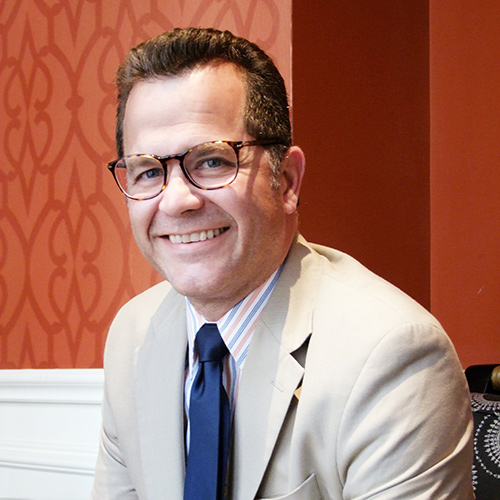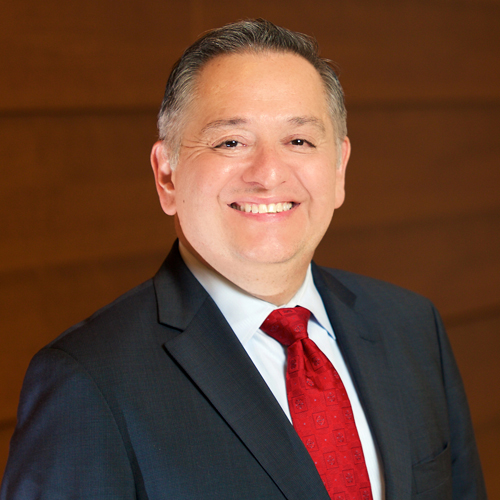Being the son of a Mexican immigrant and the youngest of seven boys helped Peter Villegas, Coca-Cola’s vice president in the office of Latin affairs, learn how to deal with a variety of personalities. Instead of fighting, Villegas remembers always wanting to make stuff by engaging his brothers in teamwork.
“Being part of such a big family was terrific preparation for a career in corporate America,” he says. Villegas grew up in Southern California, began his career as a bank teller, and worked his way up through various management roles in the financial industry. Now a national leader at Coca-Cola, he helps establish the company as a leading corporate citizen of the Latino community.
Villegas also advocates for the community on numerous nonprofit boards. Among other organizations, he sits on the boards of the United States Hispanic Chamber of Commerce (USHCC), the American Israel Public Affairs Committee National Council, Inland Empire Economic Partnership, and the Friends of the National Museum of the American Latino.
In 2012 he received the USHCC Corporate Advocate of the Year Award and was chosen by the Orange County Business Journal as one of the most influential Hispanics in Orange County, CA.
The Hispanic Association on Corporate Responsibility (HACR) also recognized him as one of the top Latino executives in corporate America in 2015.
Villegas had been with JPMorgan Chase for over 20 years, when he accepted a role with the Coca-Cola Company in January 2015. One of the major reasons for his move, says Villegas, was the company’s commitment to the Hispanic community.
“The Coca-Cola Office of Latin Affairs reports directly to the president of the company,” he says. “When you have that kind of direct engagement, it means that the company is sincere about its relationship with our community. I am honored to have been chosen to help build the bridge between Coca-Cola and the Hispanic
community.”
The Pulse of the Community
Because the Hispanic community is the fastest growing consumer base in the country, Coca-Cola is wise to have its pulse on the community. The best way to do that is by establishing deep relationships with the key stakeholders that represent the community at all levels: the politicians, educators, and civic and business leaders.
“We want to work with key representatives from each segment within our community as partners,” he says. “We are working with organizations from Los Angeles to New York and speaking with political leaders in city halls, state capitols, and Washington, DC.” Coca-Cola works with these partners to develop ways to educate communities on multiple issues, including healthy living. “We continue to develop new initiatives for all consumer segments, including Latinos, to encourage them to understand the importance of what they drink, eat, and do for healthy living.”
Outside of his day job, Villegas chairs the legislative committee of the USHCC.
“Our membership is very diverse, representing every imaginable industry,” he says, “and in that sense, we represent the interests, not of just Hispanic, but of all American businesses.”
As the 2016 elections approach, the USHCC has been very active in understanding and working with the platforms of presidential candidates on both sides.
“To have our support—and this is valid for any candidate, of any party—engagement with the Latino community is a must-do and not a nice-to-do,” Villegas explains. In April, the USHCC launched a presidential candidate question-and-answer series. It’s a one-on-one format, led by president and CEO Javier Palomarez, who has conducted interviews with candidates including Donald Trump, Bernie Sanders, and Ted Cruz, with plans to conduct many more.
Villegas strongly believes that to truly assume leadership in this country, Hispanics must be informed and engaged on both national and international affairs. As a member of American Israel Public Affairs Committee National Council, he sees his role as an important opportunity to communicate to the Hispanic community what US relationships with other countries mean for them.
“As the Hispanic community continues growing, our leadership has to play an important role in shaping our foreign policy,” Villegas says. “Through business importance and political influence, Hispanic Americans will only continue to be increasingly influential on domestic and world affairs.”

